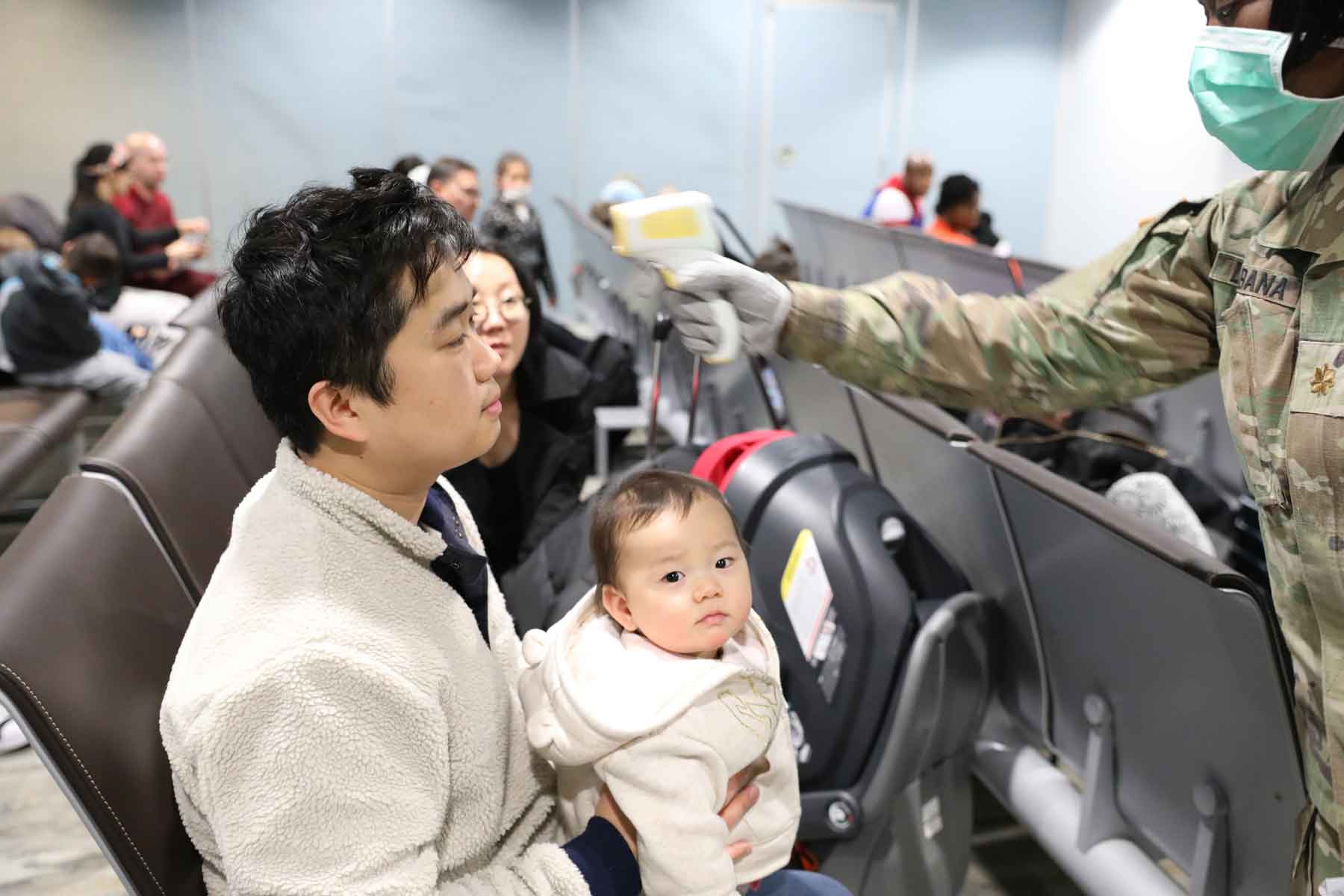
Milley Wishes ‘Hard Look’ at Restricting People from Extra Overseas Excursions
Family members becoming a member of troops on accompanied tours to abroad assignments could be a factor of the previous in the proposed change away from preserving long-lasting bases in other nations, Joint Chiefs Chairman Gen. Mark Milley reported Thursday.
Milley claimed he was concerned about military services people living in abroad locations the place they could be at threat.
“I consider that is some thing that requires a tough, difficult search,” he explained.
Browse Upcoming: The Navy is Naming its Subsequent Frigate USS Congress
The U.S. requirements permanent bases overseas to provide a forward presence in the new period of terrific ability opposition with Russia and China, Milley said in a digital U.S. Naval Institute Protection forum. But, he extra, those bases would be greatest served by rotational forces.
Having military staff accompanied by their households at overseas bases “requires a considerable relook for a lot of causes — a person is charge, but another is drive safety, specifically for our non-combatants, relatives associates, spouses, little ones, and so forth.,” Milley mentioned.
He noted that the U.S. army regularly deploys troops for lengthy tours in places other than in beat zones. “Individuals like it and they’re abroad, and it really is exciting in a international place and speaking a [foreign] language, and all this other form of things,” he said. “But there are elements of risk.”
He cited Bahrain, headquarters of the Navy’s 5th Fleet, as an case in point.
“Nicely, there’s a selection of tension” in the region, “and has been for some time with Iran,” he stated. “If we ended up at any time to have a conflict with Iran, these non-combatants would be at higher danger.”
Milley also pointed out the dangers to navy people in South Korea, in which 28,500 U.S. troops are stationed.
“I have a problem with that,” specified the unpredictability of the North Korean routine, Milley explained.
Pertaining to families accompanying their services members on foreseeable future South Korea tours, “I am not so confident that is a clever transfer likely into the long run,” he mentioned.
Milley acknowledged that there was not “a great deal of enthusiasm” for what he was proposing, and choices on rotational forces and restricting accompanied tours ended up not his or the Pentagon’s to make.
His proposals amounted to a “grand strategic dilemma that has to be answered, not by those in uniform. It has to be asked and answered by the nation’s plan makers, the American men and women, Congress and so on and so forth,” Milley explained.
However, the Defense Office has now taken preliminary measures to limit accompanied tours in U.S. Central Command’s space of responsibility in the Mideast.
In June, DoD issued a memo stating that excursions in the CENTCOM space would be extended to 12 months and troops on the prolonged excursions would not be permitted to deliver their people with them.
The new rules would just take impact around two decades and would at some point final result in 12-thirty day period tours in Bahrain, Kuwait, Oman, Qatar, Saudi Arabia, United Arab Emirates, Yemen and Iraq, the memo stated.
Currently, army family members are allowed to accompany their service users only in Bahrain and Qatar.
“Family members in the two nations around the world are approved to serve out the remainder of their excursions,” the memo mentioned, but at the time the 12-month tour technique is absolutely implemented, all tours in the area would be unaccompanied.
— Gina Harkins contributed to this story.
— Richard Sisk can be arrived at at Richard.Sisk@Armed service.com.
Similar: Police Improve Will Conclude Accompanied Tours for Troops Deploying to Bahrain, Qatar
Clearly show Comprehensive Posting
© Copyright 2020 Army.com. All legal rights reserved. This substance may possibly not be posted, broadcast, rewritten or redistributed.
